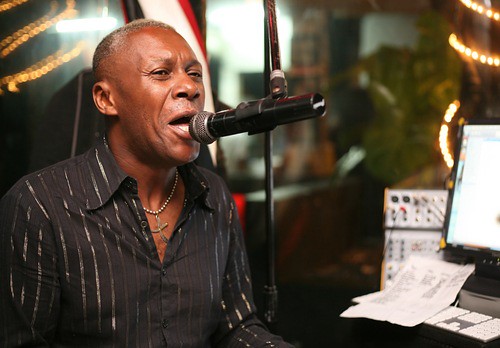
–The Musician’s Way, p. 179
Take a moment to recall the stage presence of some memorable soloists: Don’t they convey authenticity and enjoyment?
Authenticity and enjoyment are common features of commanding performers, so it can falsely seem that stage presence arises from inborn traits, akin to personality.
In fact, projecting a commanding presence from the stage involves skills that any musician can learn.
Here, I encapsulate four essential components of stage presence that I expand on throughout The Musician’s Way: 1. preparation; 2. desire; 3. strength; 4. showmanship.
Four Components of Stage Presence
1. Preparation
Thorough artistic and technical preparation underpins our ability to be secure and expressive under the lights.
Similarly, smart organization ahead of events ensures that we arrive on time, in a positive mood, and with all of our equipment ready.
2. Desire
When we’re not only prepared but also passionate about sharing our music, our commitment draws listeners in.
Whether we choose every title or present repertoire chosen by music directors, we need to generate enthusiasm for each composition we perform.
3. Strength
Audiences look to us to lead them on musical journeys. So, whether we’re outgoing or laid-back, we need to hold the stage with the vigor of leaders.
To that end, it’s crucial that we maintain our mental and physical health, ensuring that we’re rested, enthusiastic, and strong when the curtain rises.
4. Showmanship
Showmanship (or show-womanship) entails projecting our love of music and our desire to commune with listeners. It doesn’t equate with flamboyance.
Whenever we’re on stage, whether we’re performing for the public or an audition panel, our demeanor, gestures, and speech should broadcast an invitation that says, “Let’s share something magical!”
See The Musician’s Way for comprehensive guidelines to excel as a performing artist.
Related posts:
The 5 Facets of Performance Preparation
Mastering Performance Skills
Practicing Performance
Projecting Ease
The Zing of Adrenaline
© 2012 Gerald Klickstein
Photo © T. Morozova, licensed from Shutterstock.com


Gerald, this is wonderful!
One thing I would add because it helps me so much is to imagine we’re all family and friends in our communal living room. That’s why speaking with the audience informally, trying to draw a little talk back or laughter is a very important technique to relax everyone.
Thanks for the comments Rick and Kentaro. Rick: I concur that speaking and humor create powerful connections with audiences and positively contribute to our presence on stage – every performer needs the skills to be able to connect verbally with listeners. Also, I think that your point about imaging that you already know your listeners and that you’re gathering in a comfortable, supportive space is a mental technique that would help almost anyone. Thanks for contributing!
beautifully written.
i couldnt agree more